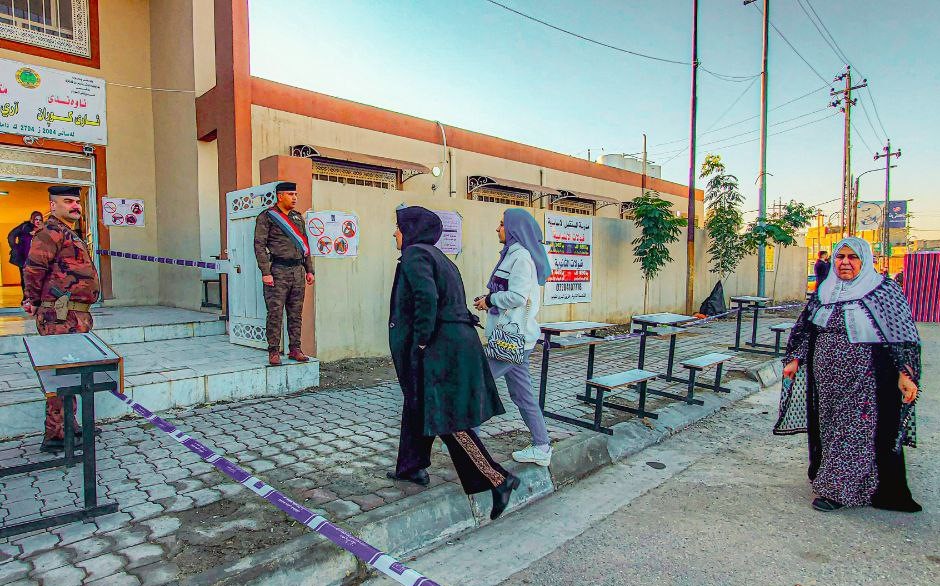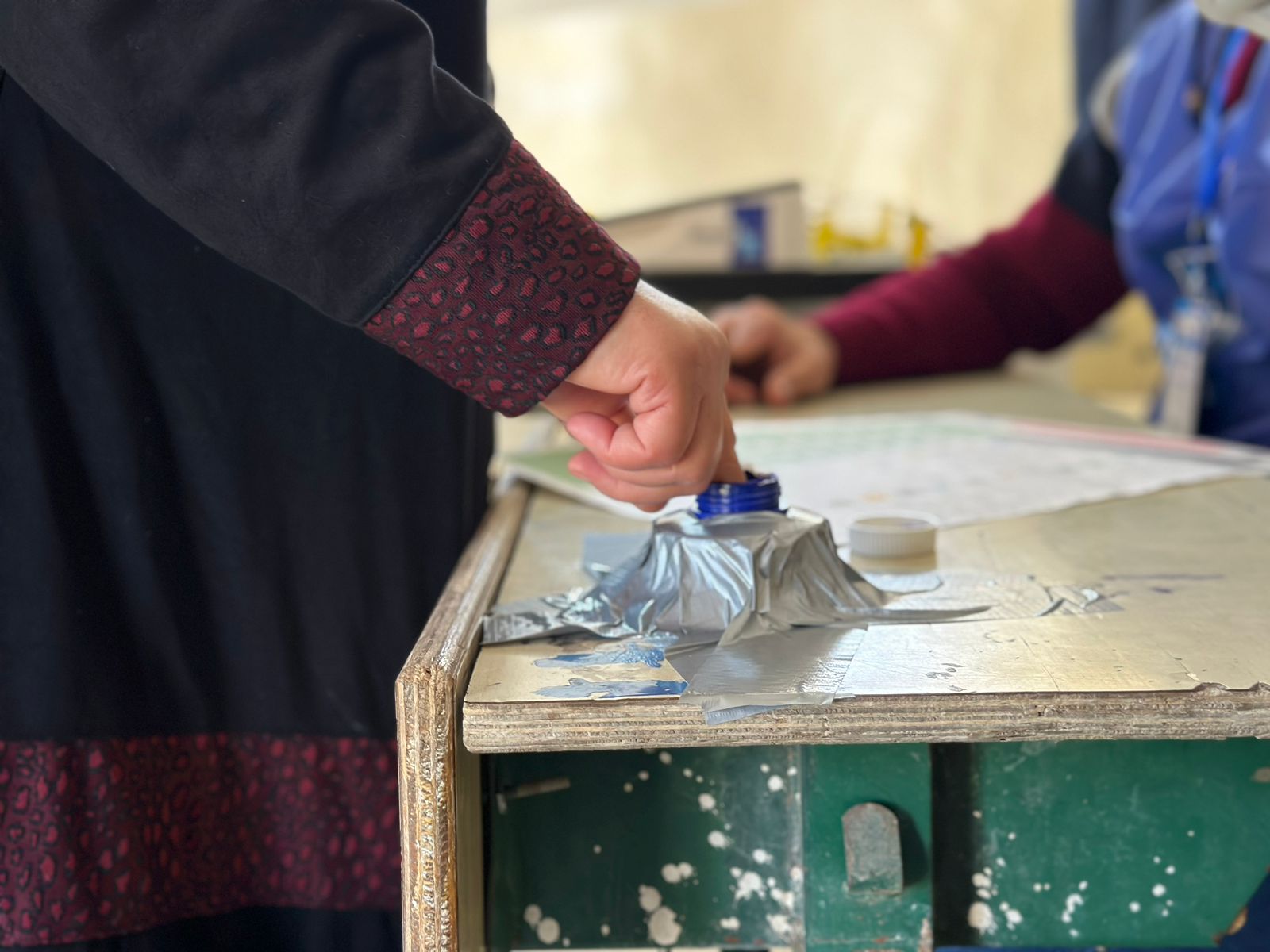Despite the progress made by Iraqi women in various fields, their active participation in decision-making still faces major challenges, especially at the local governments.
Many women have won significant electoral votes that qualified them to enter provincial councils, but their presence in decision-making remains weak, as top executive positions are still reserved for men and there are obstacles to their path towards real empowerment.
According to Kirkuk Now’s follow-ups, out of 76 female candidates who won seats in provincial councils, 17 of them won votes without resorting to the quota system, three of whom garnered the highest votes on their lists, according to the final election results.
The provincial council elections law allocated more than 25% of the seats to women, equivalent to 75 seats out of a total of 285 seats in the provincial councils (excluding the Iraqi Kurdistan Region IKR).
Women empowering organizations
Salwa Al-Mufarji, a member of the Kirkuk Provincial Council from the Arab Coalition, confirmed that she plans to establish women's organizations (Non-governmental organizations NGOs) from her own office in the future, in coordination with Sawsan Jadou, a member of the provincial council from the Turkmen component, to hold activities that contribute to empowering women.
Al-Mufarji said that she realizes the importance of Security Council resolutions related to empowering women in times of conflict and is working according to a plan to enhance the role of women in society and encourage them to assume a prominent position.
She indicated that she is currently noticing "a positive development in women's political presence, and this presence is increasing over time, especially in Kirkuk province." She explained that she believes that every workshop or idea is useful for developing women in some aspect of life, stressing that she "has a long-term interest in women's issues."

Only in Kirkuk did women exceed the quota, after winning five seats out of a total of 16 seats in the provincial council, where four seats were allocated to them according to the quota system, two of these candidates won based on the votes they received.
Regarding her political presence, Al-Mufarji pointed out that she had previously discussed in one of her researches the quota system, which she considered a "blessing" that limits the value of women.
She believes that women are capable of rising to important positions if they are given the appropriate opportunity without the need for a quota, and even if the quota system is introduced, it should be separate from the women who received their votes in the elections.
She pointed out that "women have proven their leadership ability globally, and that they are more committed than men in many cases."
Amid the provincial council elections held on December 18, 2023, in 15 provinces, out of about 6,000 candidates, over 1,600 women competed to win seats in the councils.
Small projects to support women
Sumaya Al-Khabouri, a member of the Nineveh Provincial Council, explained that women in Nineveh are the most in need of support, and she is fully aware of this fact, as it is one of her main goals.
She added in an interview with (KirkukNow) that before joining the provincial council, she was responsible for the "Zahrat Al-Hadbaa Organization for Development and Relief", where she focused greatly on working with women.
"Women constitute the largest part of her support base, and they benefit from projects that contribute to their self-realization and strengthening their presence in society."
Al-Khabouri pointed out that these projects support women and their families, whether they are activists, lawyers, or politicians, stressing that "empowering women is directly reflected in the strength of society."
Iraqi women in the legislative field have an important and clear role
In Nineveh Province, seven women won seats, which is the number specified by the quota system, four of them won without resorting to the quota, two of them received the highest votes on their lists.
Al-Khabouri added that there are many projects, including providing small livelihood opportunities for women, and that the organization takes care of many needy cases. She also announced via (KirkukNow) the launch of a campaign to provide school supplies for children, as part of the ongoing efforts to support families and women in the province.
Approaches to empower women's representation in local government
Amal Marai, head of the Services and Reconstruction Committee in Salah al-Din province, explained that women suffer in most Iraqi provinces.
"We live in purely tribal societies, they do not give women a role in executive fields, so Iraqi women in the legislative field have an important and clear role, but in the executive field, it seems that this role is due to the constitution that approved a quota of no less than 25% of the number of council members with an increase," Marai said.
She explaining that the government is supposed to take this percentage into account in executive departments as well.
"Since experience has proven that women are more honest and more committed than men due to social matters related to their reputation and honor, I nominate that sensitive positions, especially financial aspects, be in the hands of women," she added.
The current ministerial cabinet headed by Mohammed Shia al-Sudani includes three women out of a total of 23 ministers, making 13% only. This comes while 83 seats out of 329 seats in the Iraqi Council of Representatives were allocated to women, equivalent to 25%. In the last parliamentary elections held in October 2021, women were able to exceed the quota and secure 97 seats, 57 of which won without resorting to the quota.
"All the conferences and workshops that we attend to support women are just consumables, and there is no conference that has truly addressed the challenges facing women in the political field," she added.
"I seek to establish a mechanism that shows the challenges facing women and we adopt it as an initiative for the Salah al-Din Provincial Council and provide successful solutions to increase the number of women in the executive authority."

After 2003 and the beginning of a new phase in Iraq, a women’s quota was established by the constitution and then by legislative laws, and it was stipulated that the number of seats allocated to women should not exceed 25% of the total parliamentary seats.
In addition to establishing the quota system, the Iraqi constitution in Article 20 granted women, like men, the right to participate in public affairs and political rights such as voting and running for office.
Marai pointed out that “in 2014, the percentage of women in the political field was more than 25%, unfortunately the percentage of women has declined, especially with the legislation that is being enacted and that infringes on women’s rights that were established by Islamic law.”
In Diyala, four women won seats in the provincial council, which is the same percentage as the quota, but two of them won based on the votes they received, while in Salah al-Din, four women won seats based on the quota system.
For her part, Saadia Al-Sultani, Secretary General of the Salahuddin Provincial Council and Head of the Finance and Administrative Committee in the province, stated that she is interested in calling on the Council of Representatives to vote and restore the percentage of women's participation in the government.
Al-Sultani stressed that women are half of society and give birth to men, and at the level of local councils and administrative positions, "women's rights are being violated, even though they follow up and scrutinize political papers and decisions more than men. Women are sensitive in financial matters and are very afraid for their reputation."
She stated that she is interested in the return of displaced women and demands that they be provided with a decent life.




